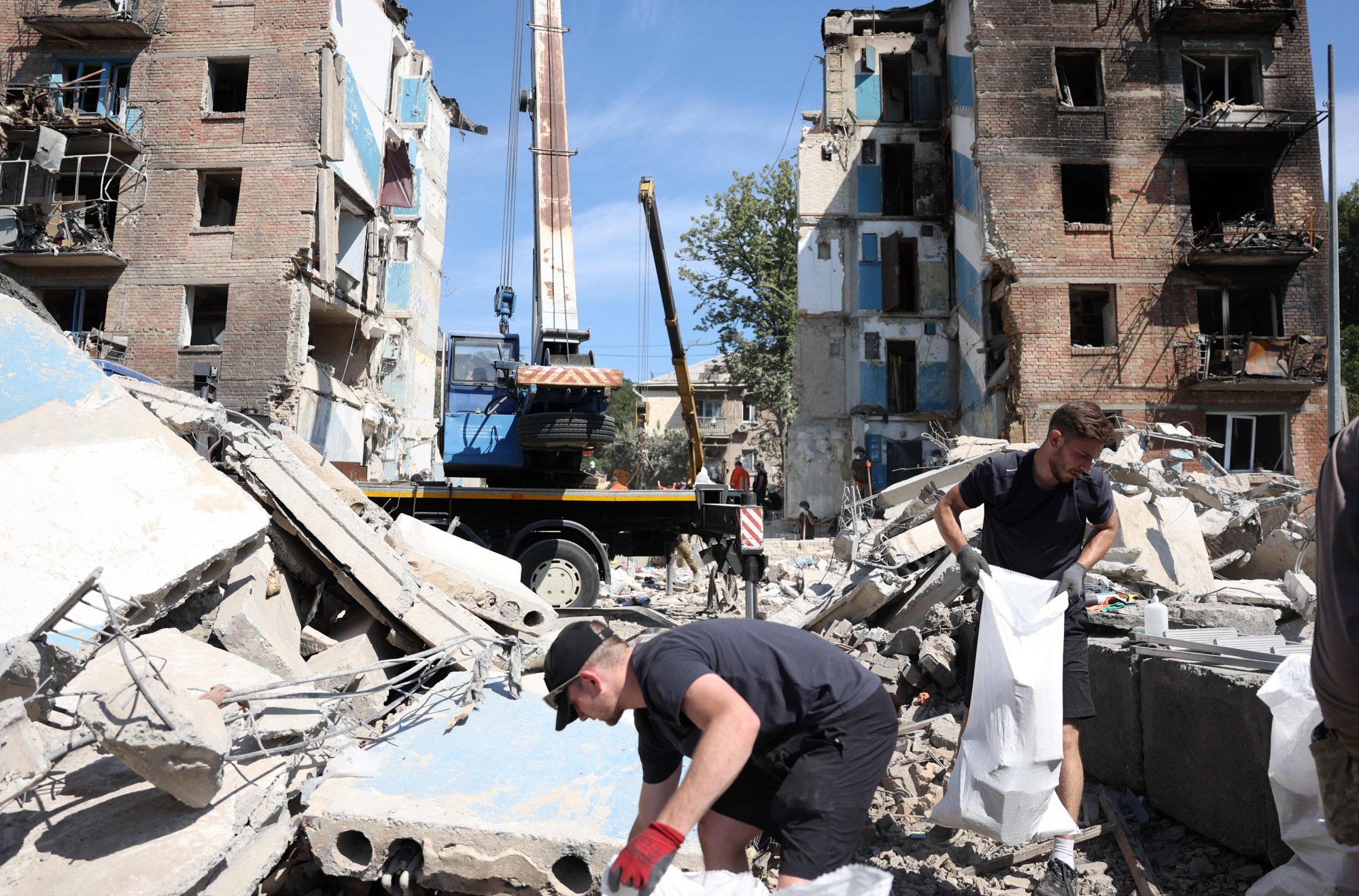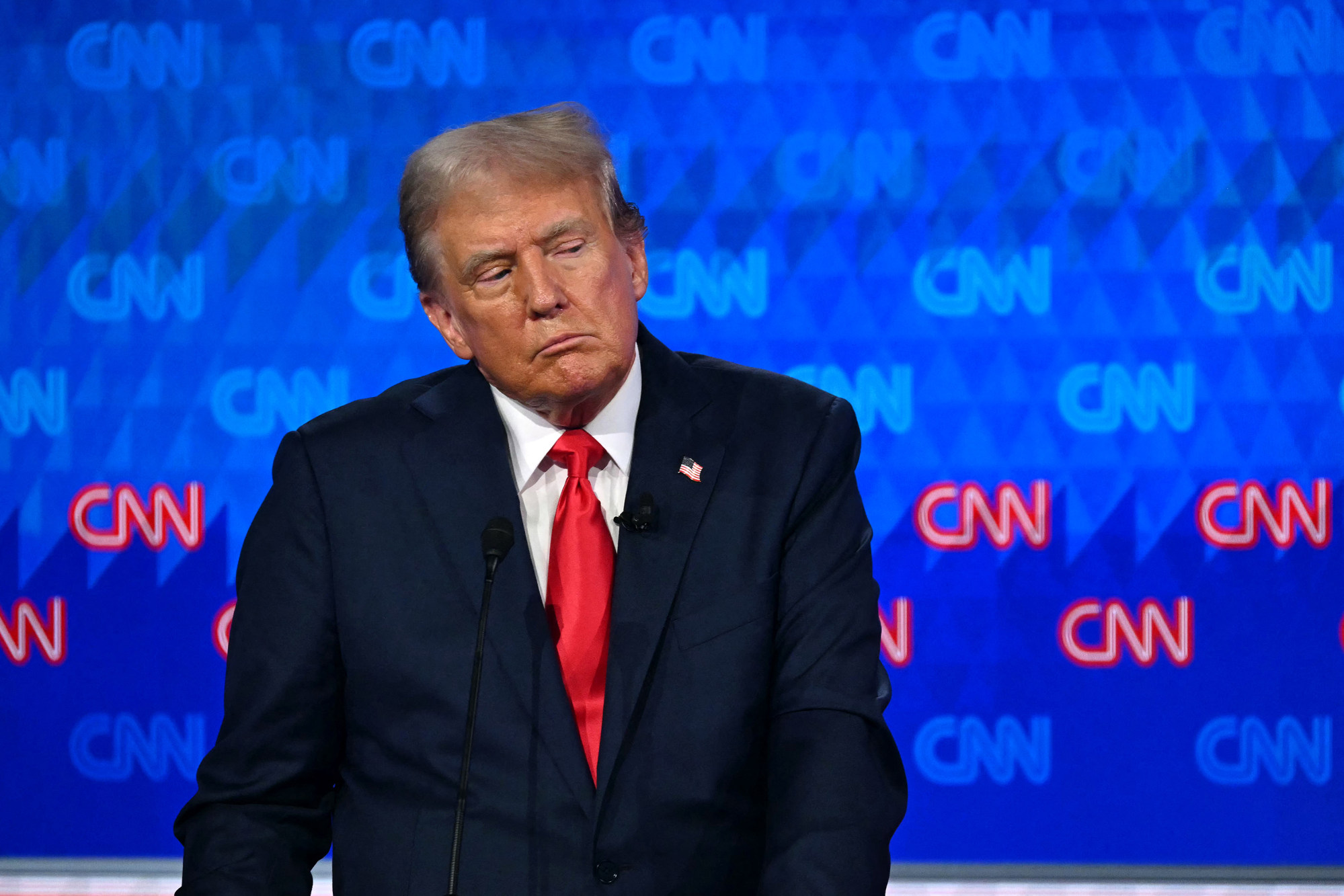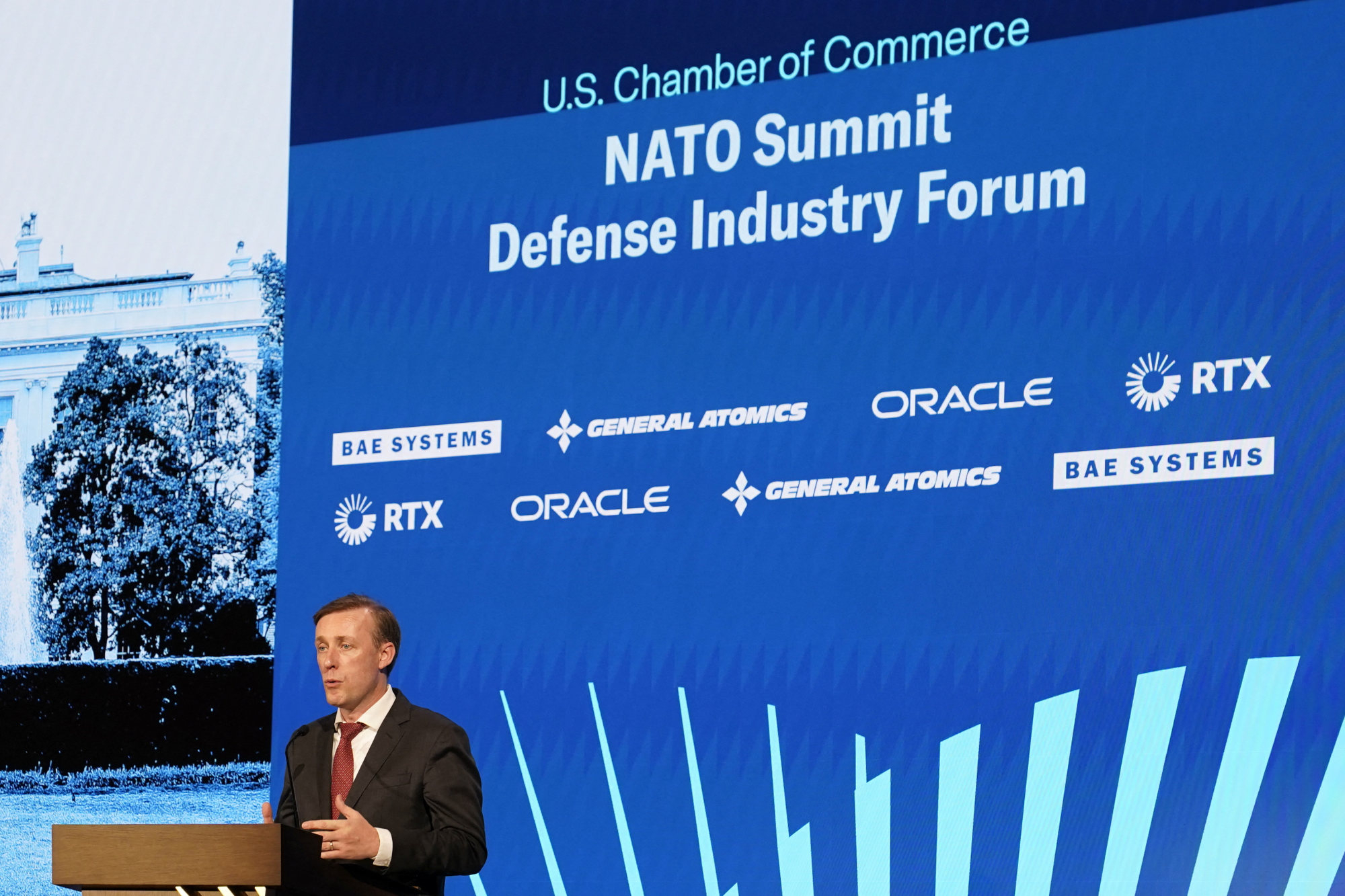US President Joe Biden underscored that Americans understood the commitment to the North Atlantic Treaty Organization was a “sacred obligation” as he marked the alliance’s 75th anniversary with the heads of member states in Washington on Tuesday.
Pointing at Russia’s war on Ukraine, Biden called for collective strength at a time when “autocrats want to overturn the global order”.
The American president described the US as willing and able “to deter aggression and defend every inch of Nato territory across every domain – land, air, sea, cyber and space”.
Later, in announcing Washington would join several Nato members in donating air-defence equipment to Kyiv, he said the war-torn nation would remain “a free and independent country” and that “Russia will not prevail. Ukraine will prevail”.

Speaking at the same venue where the North Atlantic Treaty was signed seven decades ago by the organisation’s 12 founding members, Biden said Nato had adapted to changing times and “stayed ahead of threats”.
And in an acknowledgement of the transatlantic security alliance’s broader interests, the US leader said: “The Indo-Pacific region, they’re here because they have a stake in our success. And we have a stake in theirs.”
Along with his sessions with Nato, European Union and Indo-Pacific partners during the three-day summit, Biden was slated to meet Keir Starmer, the newly elected British prime minister, and host an event with Ukrainian President Volodymyr Zelensky.
The summit comes as Biden, 81, faces significant concerns by fellow Democrats about his chances for re-election this fall following his poor performance during a June 27 debate against his presumptive Republican opponent, former president Donald Trump.
The Nato assemblage provides an international stage to convince allies that he can still lead, both at home and abroad.
Biden, who has vowed to stay in the race, insists he can maintain US global leadership for another four years.
During his administration and his re-election campaign, he has focused on working with democratic allies and partners to counter autocracies like Russia, North Korea, Iran and China.
Trump, on the other hand, made no secret of his antipathy towards Nato during his time in the White House, sharply criticising member nations for failing to spend enough on their own militaries and contending they were relying too much on the US.
On the campaign trail, Trump has raised that issue again as well as promised to cut American aid to Ukraine for its defence against Russia’s invasion.

In 2023, only nine Nato member nations spent about 2 per cent of their GDP on defence, a threshold agreed to in 2016. This year, that number has reportedly risen to more than 20 member nations.
But Biden on Tuesday struck an optimistic note, saying that although the allies had “not yet reached that milestone” there had been “remarkable progress”.
A report last week by Republicans on the US Senate Foreign Relations committee said the 2 per cent mark was no longer sufficient to counter the threats posed by Russia and China, and called for Nato nations to raise their defence budgets even further.
“This is necessary both for Nato’s defence, but also allies in the Indo-Pacific who want to rely on Western weapons systems,” it said.
Staring at the possibility of reduced American support, Nato officials and the Biden administration arrived at the summit seeking long-term support for Ukraine.
They also sought to strengthen and expand the alliance’s defence industrial cooperation globally, including in the Indo-Pacific.
At the commemoration ceremony on Tuesday, the outgoing Nato secretary general, Jens Stoltenberg, told the member nations that “our alliance should not be taken for granted”.
He observed that no “cost-free” and “risk-free” option was available against an “aggressive” Russia because a defeated Ukraine would “embolden” not only Putin but also other “authoritarian” leaders in Iran, North Korea and China.
“They all want Nato to fail. So the outcome of this war will shape global security for decades to come,” Stoltenberg said, urging that the “time to stand for freedom and democracy is now, the place is Ukraine”.
Earlier in the day, the Nato chief told a gathering of defence industry leaders that while the summit was an occasion to celebrate, it was also time to demonstrate that Nato was “fit for the future”.
It was time to “change the language to saying that 2 per cent is a minimum” and “some kind of ceiling”, he said at the event hosted by the US Chamber of Commerce.
National Security Adviser Jake Sullivan told the group that America’s allies would develop “regionally focused” plans to ensure Nato “will have the forces and weapons it needs to confront pressure in any direction, or even multiple directions at once”.
He said a new Nato military command in Germany would train and equip Ukrainian troops along with a US$40 billion security package and the appointment of a Nato envoy for the war-wrecked country.
Reiterating the US position that China, as well as North Korea and Iran, was using dual-use trade to aid Russia’s defence industry, Sullivan said the allies were “watching carefully to see what Russia provides these countries” in return to determine the impact on security of the Indo-Pacific region and other parts of the world.

At the same event, US Deputy Secretary of Defence Kathleen Hicks said the “most important thing” allies would do this year for the future of Nato was “strengthen our defence industry”.
For most of Nato’s existence “we faced a single strategic competitor that was relatively slow and lumbering”, she said, referring to Russia and its predecessor, the USSR.
Now, though, “we also cannot ignore the global pacing challenge presented by the People’s Republic of China”.
“So we have to double down with urgency and confidence,” she added, urging partners to “step up international defence industry cooperation with like-minded democracies wherever we can – with Nato allies, and non-Nato partners” and remain prepared for the likelihood of a protracted war, “and not just in Europe”.
Representatives of the Nato’s Nordic and Baltic members earlier on Tuesday at the Atlantic Council, a Washington think tank, adopted a softer tone towards Trump.
Addressing threats that Trump has made about leaving the alliance, Danish Foreign Minister Lars Lokke Rasmussen said that Trump “wasn’t really satisfied for very good reasons”, because few members were meeting the 2 per cent target.
“But things have changed now and two-thirds of the allies now will meet these criteria.”
Foreign Minister Tobias Billstrom of Sweden, Nato’s newest member, went further, saying the 2 per cent target should be “a floor, not a ceiling” – specifically suggesting that Nato members needed to spend more on their militaries to deter China from aggression in the Indo-Pacific.
“We have to make the case for this connection between Russia’s aggression against Ukraine and what this means on the global level,” he said.
“You very often meet people in the Indo-Pacific areas, representatives of smaller states there as well – like the Philippines, like Vietnam et cetera – who are extremely worried about China and view of the conflict in Ukraine exactly the way that that we do,” Billstrom added.
Additional reporting by Robert Delaney in Washington

